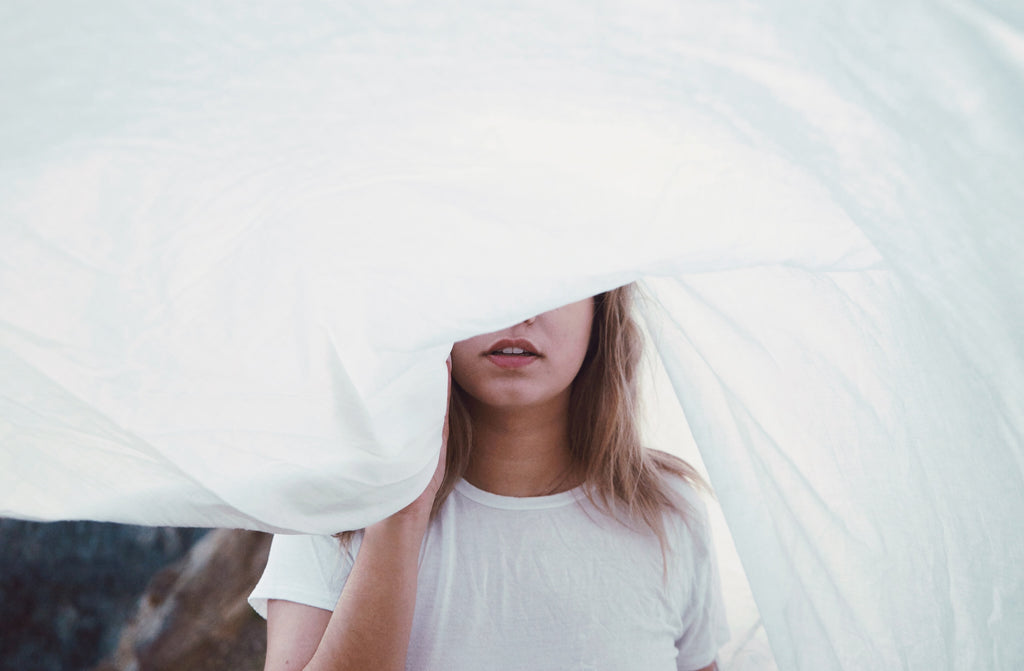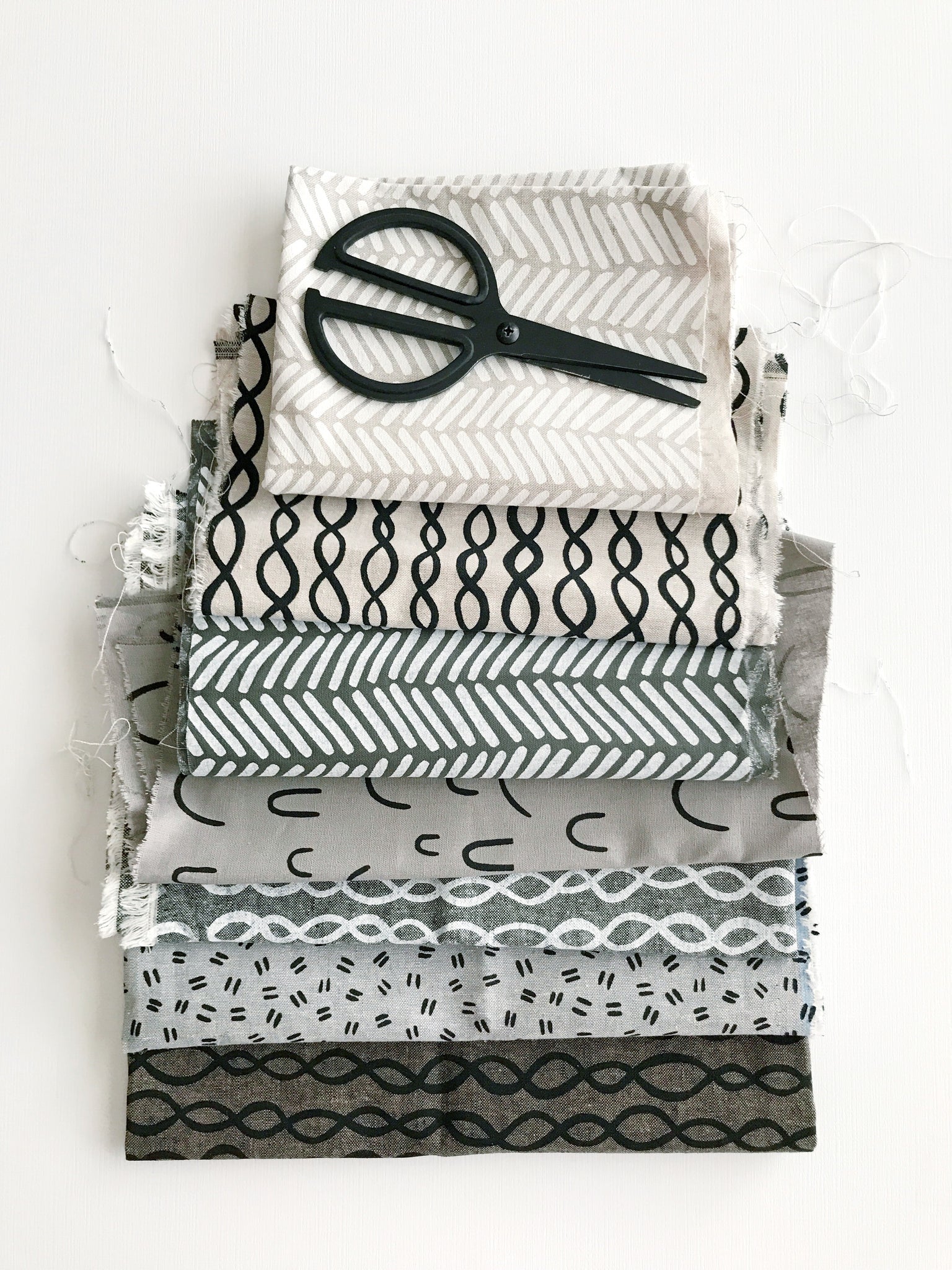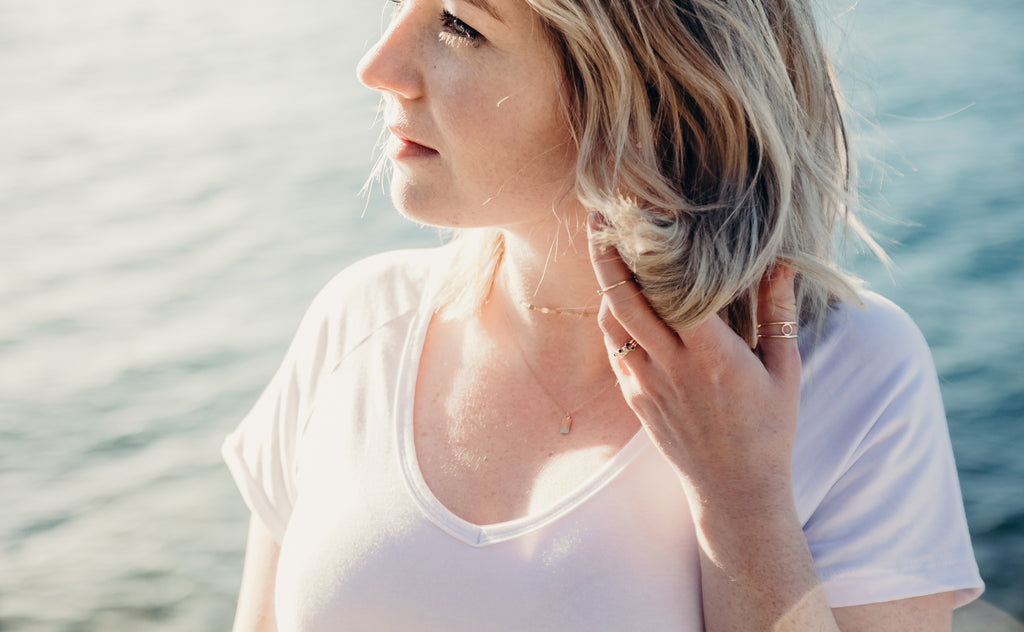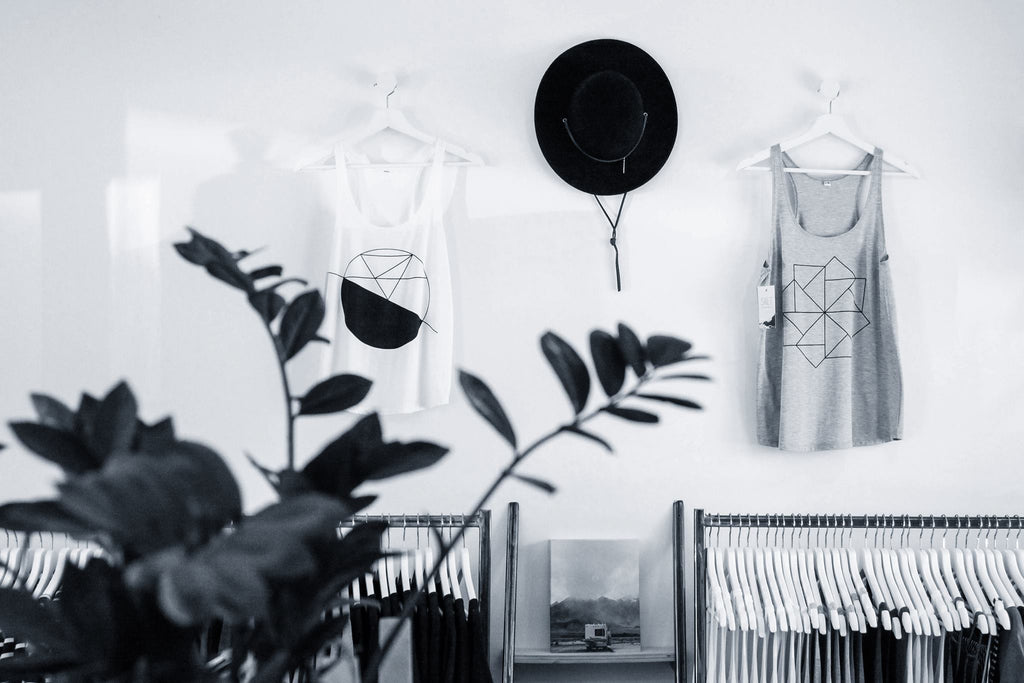When you are part of a movement that hasn't caught on as much as you'd wish it would, sometimes living up to it's highest ideals can be challenging. We speak now of the eco-fashion game.

Yes, to anyone who is paying attention to the consumer fashion world, sustainable production, transparency, and fabric content are certainly big discussions that have been evolving for several decades. For this we are thankful! We ride on the shoulders of pioneers like Patagonia and ESPIRIT who brought the discussion of sustainability in fashion into their companies and slowly to the forefront of consumers' minds. Great progress has been made. However, in our quest to become as sustainable as possible, we find that there are still glaring holes in the reality of making it happen in our industry, namely in fabric production and content.
We are still a small (but mighty!) company, so we depend on great fabric suppliers out there to source bolts of the best fabrics we can find. The thing is, sometimes we can't find what we are looking for. Before we are thinking about the style or feel of a fabric, the main boxes we want to tick are sustainable, ethical, and plastic-free. We also like to source as locally as possible, which in the textile industry can be tough depending on where you are. Canada doesn't seem to be as popular a destination as other countries to set up large textile production facilities. (We are lucky though that there are amazing large scale sewers to be found not far off in Vancouver!) We are conscious that large freighters travelling miles and miles of ocean contribute to the pollution of our saltwaters so as often as possible, we want to eliminate that from our supply chain. But what if the only options we can find in Canada are polyester blends, acrylics, or cottons that are rough and not suited to our styles? There lies the question of trade offs.

Another problem we run up against is that sometimes, the things we're looking for don't show up at all, or maybe don't even exist yet, at least not anywhere near us. For example, when you type "Plastic-free elastane" (spandex) into Google, lots of articles come up about people trying to eliminate plastic from their lives, and articles detailing how plastic in clothing is damaging the ocean. But, there seems to be no well known, sustainable alternative to adding stretch to a fabric that comes up right away. Again, being that we are still not at the scale we need to be to be able to invest in production of our own, we are still searching for that alternative.
Even for fabrics that are readily available, there is so much research and verification that needs to go into the mark of sustainability. Take Bamboo for example. A strong fibre, made from a natural plant that regenerates and grows amazingly quickly with few resources. Sounds pretty eco-friendly, right? Well, what if that bamboo is growing in a field that used to house 100s of species of animals and a plot of irreplaceable rainforest? Not quite so eco-friendly now. As it is with any crop, there needs to be careful consideration put into where and how it is grown. We could easily breeze by with a don't ask, don't know attitude, but that wouldn't be doing our due diligence in what we are trying to acomplish. We are working to educate ourselves more and more in these areas so we are always asking the right questions and doing our homework.
The other side of this discussion is style. There are probably options out there that may hit our needs thus far. We don't stop there though. The fabrics we choose still need to suit our design M.O. The feel, the fall, the cut, the colour. These are things we don't want to compromise on either. Together with carefully crafted patterns they are what achieves the versatility and expression that we create in our clothing. We want that sustainable blend with a little stretch giving you the longevity you want with the comfort and style you crave. We want it all! We're greedy.
We would love to have the capacity to produce super sustainable fabrics. Someday, our circle will have expanded enough that we can be part of the production and education processes enough to have all the best options at our fingertips.
We look forward to this discussion permeating all industries, especially energy, transportation, and agriculture, until the idea of sustainability first is the norm. For now, we want to send a call out to our communities. What do you know on the subject? What have you found? What are we missing? Is there a great company out there doing custom production of truly sustainable fabrics in Canada (or at least the USA) that we haven't discovered yet? Or, what are you looking for on content tags? What is important to you? You are part of the discussion too!
from SALT Shop - Journal https://saltshop.ca/blogs/news/search-the-right-sources








